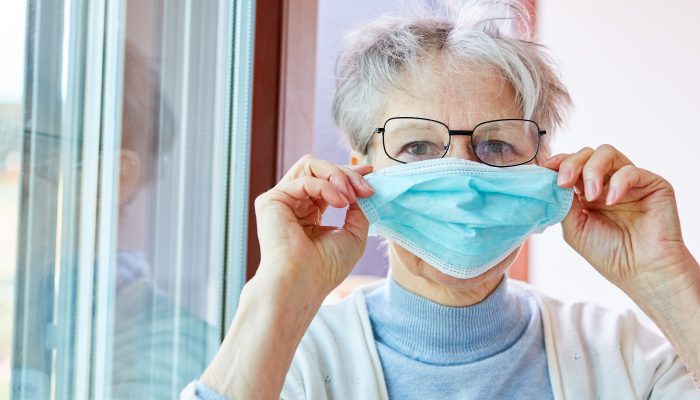COVID-19 infections have been more serious for older adults and people with chronic medical conditions. As other places – and eventually Philadelphia – start to reopen, it is more important than ever that older Philadelphians, and Philadelphians with chronic conditions, continue to follow social distancing and other health guidelines to prevent infection.
The following measures can help to lower your risk of getting sick from COVID‐19 coronavirus.
Practice social distancing
- Stay home as much as possible.
- Avoid contact with people who are sick, and with groups of people or crowds. The fewer people you are exposed to, the lower your risk.
- Don’t accept visitors. Use this excuse note, if you need it.
- Use delivery services or mail order for medications and groceries or ask a neighbor or friend to pick things up for you.
- If you do need to interact with people, keep at least 6 feet apart, avoid handshakes, hugs, and otherwise touching each other, and wash hands afterwards.
- Avoid all non‐essential travel.
Maintain good health habits
- Wash your hands often with soap and water for at least 20 seconds, especially after blowing your nose, coughing, sneezing, or having gone outside.
- Use hand sanitizer that contains at least 60% alcohol if you cannot wash your hands.
- Avoid touching public surfaces such as doorknobs and handrails.
- Avoid touching your nose, eyes, mouth, face.
- Wipe down doorknobs, light switches, toilets, faucets, cell phones, and sinks in your home every day and any time they appear dirty. Use a household cleaning spray or wipe, according to the label instructions.
- Keep up with routine care and maintenance of chronic conditions.
- Get enough sleep. Eat nutritious foods and drink lots of water. Move your body.
Make a plan for if you get sick
- Talk with your healthcare provider to get more information about watching your health for symptoms of COVID‐19.
- Stay in touch with others by phone, email, or social media.
- Determine who can care for you if your caregiver gets sick.
- Make sure your caregiver and family know what medications you are taking.
Watch for symptoms and warning signs
- COVID‐19 symptoms include a fever, cough, and shortness of breath. If you feel you are developing symptoms, call your doctor to see if you need to be seen or tested for COVID‐19.
- Call your doctor or call 911 if your symptoms are severe such as:
- Difficulty breathing or shortness of breath.
- Pain or pressure in the chest.
- New confusion or unusual sleepiness.
- Bluish lips or face.
- If you are only mildly sick, you may recover at home.
- Stay away from others while you recover.
- Use a separate bathroom, if available.
- Do not share dishes, drinking glasses, cups, mugs, utensils, towels, or bedding with people and animals in your home. Thoroughly wash these items after you use them with soap and water.
- Wash laundry using your normal laundry detergent and dry thoroughly using the warmest temperatures recommended on the clothing label.
- Learn more about how to clean and disinfect your household.
- Get medical attention immediately if your symptoms are getting worse or if you have trouble breathing, chest pain, lightheadedness, or other severe symptoms.



